alternative
Kate Bush "50 Words for Snow"
Posted October 3rd, 2013 by kevster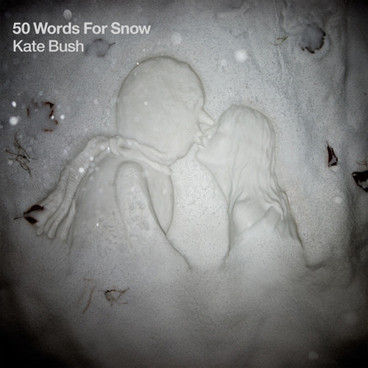
50 Words for Snow is all new, her first such venture since 2005's Aerial. The are only seven songs here, but the album clocks in at an hour. Despite the length of the songs, and perhaps because of them, it is easily the most spacious, sparsely recorded offering in her catalogue. Its most prominent sounds are Bush's voice, her acoustic piano, and Steve Gadd's gorgeous drumming -- though other instruments appear (as do some minimal classical orchestrations).
With songs centred on winter, 50 Words for Snow engages the natural world and myth -- both Eastern and Western -- and fantasy. It is abstract, without being the least bit difficult to embrace. It commences with "Snowflake" (featured here), with lead vocals handled by her son Bertie. Bush's piano, crystalline and shimmering in the lower middle register, establishes a harmonic pattern to carry the narrative: the journey of a snowflake from the heavens to a single human being's hand, and in its refrain (sung by Bush), the equal anticipation of the receiver.
50 Words for Snow is such a strange pop record, it's all but impossible to find peers. While it shares sheer ambition with Scott Walker's "The Drift" and PJ Harvey's "Let England Shake", it sounds like neither; Bush's album is equally startling because its will toward the mysterious and elliptical is balanced by its beguiling accessibility.
Mazzy Star "So Tonight That I Might See"
Posted October 3rd, 2013 by kevster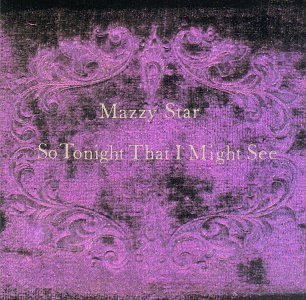
Thanks to the fluke hit "Fade Into You" -- one of the better beneficiaries of alt-rock's radio prominence in the early '90s, a gentle descent of a lead melody accompanied by piano, a steady beat, and above all else, Hope Sandoval's lovely lead vocal -- Mazzy Star's second album became something of a commercial success. All without changing much at all from where the band was before -- David Roback oversaw all the production, the core emphasis remained a nexus point between country, folk, psych, and classic rock all shrouded in mystery, and Sandoval's trademark drowsy drawl remained swathed in echo.
If there's a left-field standout, then unquestionably it's "Five String Serenade" (featured here). A cover of an Arthur Lee song -- for once not a Love-era number, but a then-recent effort -- Roback's delicate acoustic guitar effortlessly brings out its simple beauty. Tambourine and violin add just enough to the arrangement here and there, and Sandoval's calm singing makes for the icing on the cake.
Santigold "Master of My Make-Believe"
Posted October 3rd, 2013 by kevster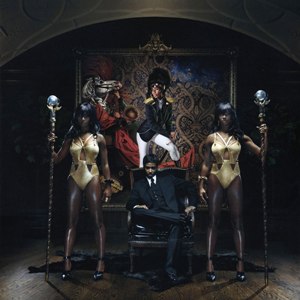
Frontwoman Santi White has taken on the face of Santigold for Master of My Make-Believe, as depicted in the album's artwork, which finds her portraying all four characters (even the mustached man that sits front and center). John Hill continues to co-write, but with White gaining pop star status, he takes the back seat, as they enlist the help of A-list producers Diplo, Switch, Boyz Noise, Buraka Som Sistema, TV on the Radio's Dave Sitek, Ricky Blaze, and Q-Tip. Multi-instrumentalist Greg Kurstin (Beck, Flaming Lips) and the Yeah Yeah Yeahs also make a huge impact on the sound of the record, with Karen O contributing vocals on the leadoff "Go!" and Nick Zinner scattering delicious guitar texture across the tracks.
When not dabbling in reggae (like on the Beastie Boys album cameo "Don't Play No Game That I Can't Win"), White -- whose favourite band is appropriately the Smiths -- continues to be masterful at appropriating sparkling '80s arrangements, as seen in "The Keepers," (featured here), a slick song that swipes a melody line from "Little Red Corvette" and incorporates a theme once explored by Talking Heads ("While we sleep, our house is burning down").
While that's no guarantee that the sophomore outing will be as huge a hit as Santigold's breakout, at least it's proof positive that Santi White is settling in for a long ride.
Lisa Hannigan "Sea Sew"
Posted October 3rd, 2013 by kevster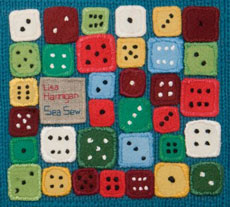
Debut album from rising young Irish singer/songwriter probably best known to British audiences for her vocal performances on records by her fellow countryman Damien Rice. Hannigan's quirky, literate, acoustic folk-pop, rich with the backing of strings, brass, and glockenspiel, is more upbeat than Rice's, and is comparable to the work of Kathryn Williams and Juliet Turner. "Lille" (featured here), was the first single from the album, and has you floating away on a sea of loveliness.
Richard Hawley 'Truelove's Gutter'
Posted April 28th, 2010 by kevster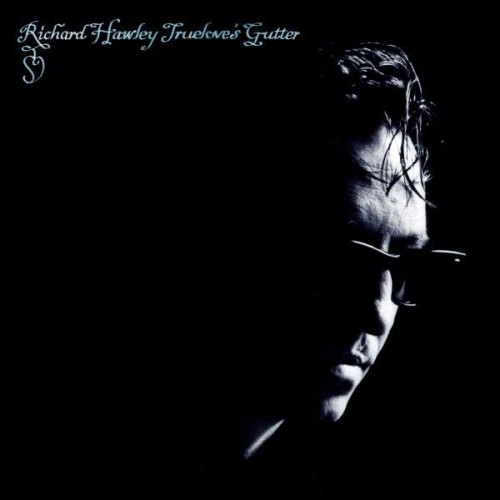
Richard Hawley has always shown a penchant for writing deeply evocative and emotional songs about places, people, and situations. His first couple of recordings, especially 'Lowedges', reflected his obsession with lushly orchestrated pop songs and a production style that extended a song far beyond its margins and into the listener's world with a near visual sensibility.
On 'Truelove's Gutter', Hawley has dug the well much deeper and brought forth a spring of new ideas in his singing, writing, and production, but paradoxically, has done so with less.
The album is more sparse than anything he's released. Its eight songs have a decidedly late-night feel. The grand sweeping orchestral strings of his last two albums have been replaced by a chamber section and odd instrumentation that add real intimacy to the proceedings.
These songs reflect his own experiences, or the trials and tribulations of friends. His gorgeous melodies shine through brighter in songs that are nakedly tender and unflinching yet are musically more sophisticated, adding to their depth of field.
"Open Up Your Door" (featured here) would be just a pop song were it not for lyrical concerns underscored by the only orchestral arrangement on the set: it's a plea for reconciliation by a husband who confesses and owns his shortcomings, while professing his all-consuming love for his spouse in the wake of a dispute as strings swell and punctuate them in the bridge.
The melody is infectious, and Hawley's soaring baritone evokes the power of Roy Orbison's tenor.
'Truelove's Gutter' is a singular moment in Hawley's catalog that displays the maturity of all his gifts. It is quietly passionate, graceful, elegant, utterly moving, and unequivocally beautiful in its honesty and sophistication. He's realized an ambition here that is artful and singular.
Lene Lovich 'Stateless'
Posted April 23rd, 2010 by kevster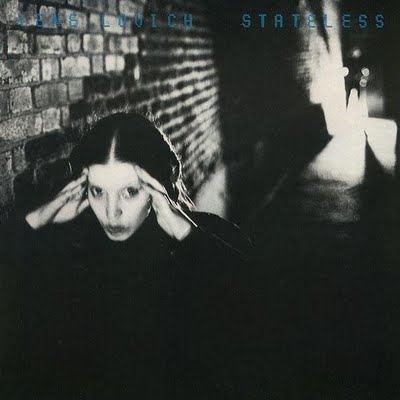
One of Stiff Records' most stable staples, the truly alternative Lene Lovich laid much of the groundwork for an entire generation of singers left to pick up the pieces in the wasteland of the post-punk era. Her stunning debut, 1979's 'Stateless', was so unique, so vibrant, and her vocal stylings so unusual that the LP not only put her right at the front of the pack of nascent new wavers, it also sounded a commercial death knell of sorts, relegating her to the realms of novelty acts -- at least as far as the mainstream was concerned.
Re-recorded from the demo that landed her a deal in the first place, a unique rendering of the bubblegum puff piece "I Think We're Alone Now" (featured here) provided such propulsion that its B-side, the now-classic "Lucky Number," was itself then re-recorded, to land Lovich a Number Three U.K. hit in early 1979.
Elsewhere, the darkly sinister "Home" played off the rumors concerning Lovich's exotic Eastern European background (she was actually from Detroit, but she could fake a great accent). The piano-led Patti Smith-y "Too Tender (Too Touch)" allowed Lovich to explore a quieter corner, as did a sexy, sensuous rehash of Nick Lowe's "Tonight."
For those looking for the best of British proto-punk label Stiff Records, this release will more than satisfy.
Erland and the Carnival 'Erland and the Carnival'
Posted April 22nd, 2010 by kevster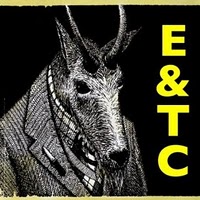
There's not much more British than slightly freaky folk music. As if to prove the point, Erland Cooper (along with Simon Tong (Verve, Blur) and (drummer from The Fireman) David Nock) has mined these pleasant pastures for a debut album of depth and weird beauty.
Together, they've taken various bits of existing poetry, lyrics, folk tales and songs, and melded them together with their own organs, guitars and lyrics. The result is a collection of engaging, swirling tracks and stories that sound like the soundtrack to a creepy, dreamy funfair.
The best example of this is The Derby Ram – an update of the traditional ballad about the giant ram which got the city its emblem.
Elsewhere, William Blake's verse The Echoing Green is set to a hypnotic offbeat guitar part that Cooper hides his voice behind. Leonard Cohen's return-to-libido poem Disturbed This Morning is given a curious reworking that makes it more wanderlust than old-man lust, and My Name Is Carnival (featured here) a cover of a track by tragic 60s folk singer Jackson C Frank (which gives the band their name) is a buxom, jazzy, introduction to the Carnival's shtick.
It's a curiosity alright, one you can file next to similarly interesting backwards-looking modern bands like The Decemberists, The Coral and Mystery Jets.
A freakbeat take on sample culture.
Mary Timony Band - The Shapes We Make
Posted August 29th, 2007 by aidan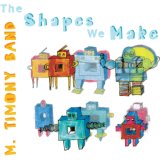
At the outset this felt like typical female fronted pop-rock, the more I listened the more I realised that there's actually some really interesting work going on here. Second listen and I'm finding myself rather intrigued.
Kind of punky. It would be easy to drop the PJ Harvey label on this because of the rawness that comes through - it doesn't really sound like PJ Harvey (well, Pause/Off does a bit). Killed By The Telephone has interesting almost found sounding patterns towards the end.
You know what, this is almost prog. They use those classic keyboards and the vocals have an 80s Debbie Harry vibe.
That's it, prog it is.
Mclusky - McLusky Do Dallas
Posted July 31st, 2007 by aidan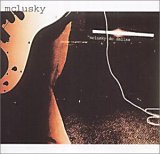
Howzer! This one caught me off guard. The opener (Lightsabre Cocksucking Blues) really sets the tone. Alternative-Rock/Punk-Pop, in the sense that it's catchy as all hell. Bit of an Albini sound about the recordings.
Mike Patton esk vocal moments - I think it's the way he screams when he's losing it - controlled crescendos. Sounds like Ween sometimes too. Great lyrics as well, "The little kid pissed on the big kids porch, He thinks he's amazing he's rubbish of course, But one of those bands got paid I heard, One of those bands got paid"
Reminds me of an old Hawkes Bay band, Big Blue Blanket. I believe that a good song is a good song no matter what style it's played in. There are some people blessed with the ability to write good catchy songs. These guys have that gift and it makes for some of the most enjoyable alternative punk-rock I've ever listened to.
The Books - Thought for Food
Posted June 25th, 2007 by aidan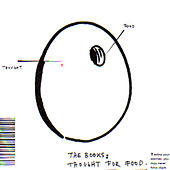
This reminds me of a lot of different stuff - probably because it's all over the place in terms of style. Don't get me wrong, it's stronger for it - a cohesive work. I imagine that without paying attention it probably sounds like a bit of a jumble of noises - closer inspection reveals some really intricate bits of construction.
Almost feels like Rachels (Systems Layers in particular) done on a budget. It has more variation than that though, bits of post-rock Mogwai-ish elements in there too (see All Our Base Are Belong To Them).
Just listened to Getting The Job Done. I really don't know what to think of this anymore.... though I do know that I like it.
 Under The Influence
Under The Influence